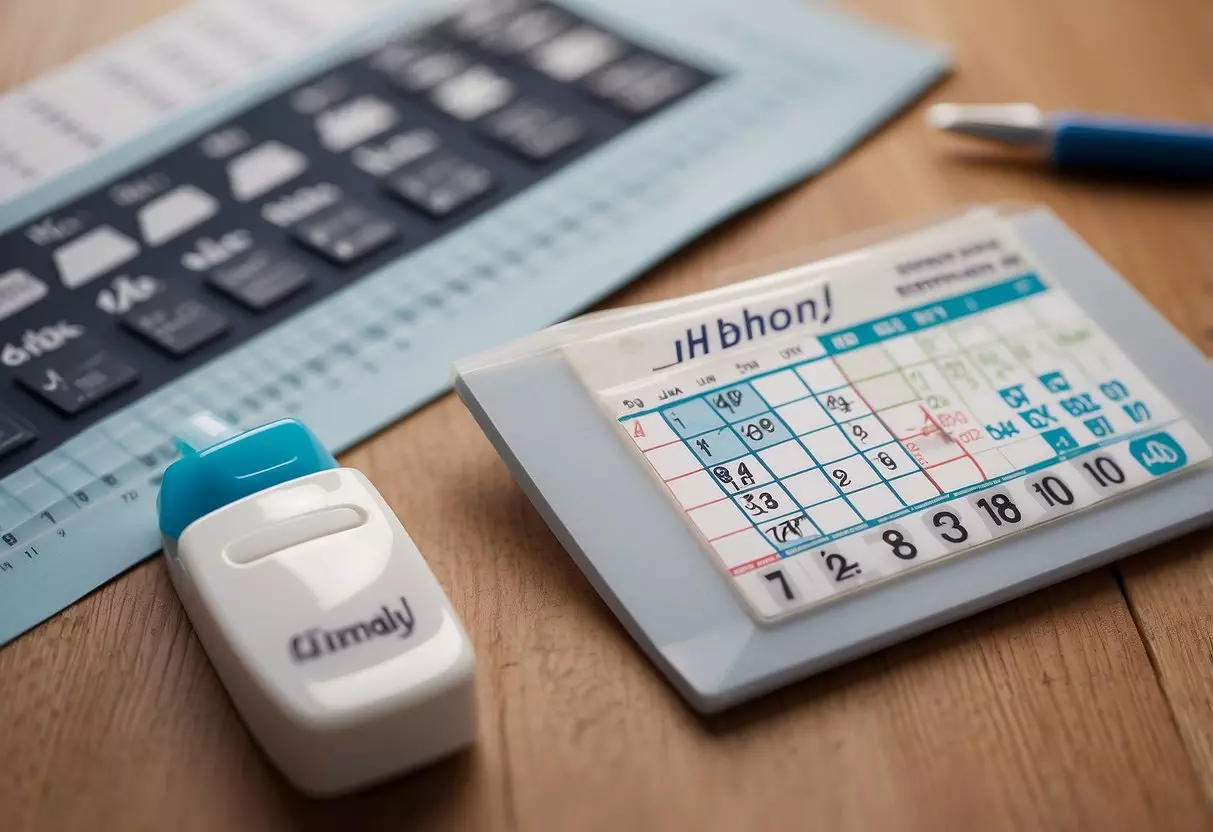What Are the Odds of Getting Pregnant at 51? Understanding the Possibilities
Thinking about getting pregnant at 51? It’s definitely a topic worth exploring. The odds of getting pregnant naturally at 51 are very low, as fertility drastically declines by this age. By 51, many women are either in menopause or approaching it, with an average of only 1,000 eggs left compared to the 25,000 eggs they had in their mid-30s.

Despite the challenges, some women do become pregnant at this age, often with the help of fertility treatments. These treatments can be expensive and taxing on your body and mind. It’s important to talk to a healthcare provider about the risks and benefits of pregnancy at 50, and what to expect throughout the process.
If you’re considering this journey, keep in mind that your overall health and lifestyle can play a significant role. There are ways to improve your chances, such as maintaining a balanced diet and regular exercise. This can help support a healthier pregnancy, even at a later age.
Table of Contents
Understanding Fertility at 51
At age 51, many women experience significant changes in their fertility. This stage in life often brings about menopause or perimenopause, and it can impact your chances of conceiving and carrying a pregnancy to term. You may need to explore various fertility treatment options and consider potential health risks.
Menopause and Perimenopause
Menopause marks the end of your menstrual cycles, usually occurring around age 51. During perimenopause, which can start several years before menopause, your fertility gradually declines. Your ovulation becomes irregular, and symptoms like hot flashes and night sweats appear.
In this phase, your eggs are fewer and of lower quality. This decline is part of the natural aging process in your ovaries. Although rare, it’s still possible to conceive during perimenopause until you’ve gone a full year without a period, marking the onset of menopause.
Age-Related Fertility Decline
As you age, your biological clock keeps ticking, and fertility declines. Women are born with about two million eggs, but by age 51, you have roughly 1,000 left. The remaining eggs are often lower in quality due to cumulative damage and age and fertility factors.
This age-related decline results in fewer opportunities for conception. Ovulation frequency drops, making it harder to pinpoint the fertile window. Consequently, the odds of conceiving naturally decrease, and the chances of experiencing a miscarriage or chromosomal abnormalities, such as Down syndrome, increase.
Fertility Treatment Options
At 51, conceiving might require fertility treatment options. Common assisted reproductive technologies include IVF (in vitro fertilization) and donor eggs. With IVF, eggs are fertilized outside the body and then implanted in your uterus. Using donor eggs can bypass age-related egg quality issues.
Consultation with a fertility specialist can help you determine the best approach. They can evaluate your ovaries and menstrual cycle and recommend suitable reproductive technologies. Although these methods significantly improve your chances, they also require careful consideration of risks and costs.
Risks and Considerations
Pregnancy at 51 carries more health risks. You are more prone to complications such as gestational diabetes, high blood pressure, and pregnancy complications. The chances of birth defects and chromosomal abnormalities also increase.
Regular check-ups with your healthcare provider are crucial for monitoring your and your baby’s health. It’s vital to assess these risks thoroughly before deciding to pursue pregnancy. Miscarriage rates are higher, so you should be prepared for emotional and physical challenges.
Lifestyle and Health Factors
Maintaining a healthy lifestyle can positively impact your fertility. Focus on balanced nutrition, regular exercise, and stress management. These factors support overall health and potentially improve your odds of a successful pregnancy.
Avoid smoking and limit alcohol consumption. Both can negatively affect your fertility and your baby’s development. Regular visits to your healthcare provider are essential for monitoring your health status and managing any underlying conditions that could impact your chances of conceiving and carrying a healthy pregnancy.
By staying informed and proactive, you can navigate the complexities of fertility at 51 and make the best decisions for your unique situation.
Pregnancy Likelihood and Challenges

Getting pregnant at 51 presents unique challenges. This includes lower statistical probabilities of conception, physical and medical hurdles, and emotional stress.
Statistical Probabilities
For women in their early 20s, the likelihood of getting pregnant in any given month is about 25%. This probability decreases significantly with age. By the time you are 51, the chances of conceiving naturally are very low, often cited at less than 5%.
Ovarian reserve and egg quality decline sharply with age. At 51, most women are approaching or experiencing menopause,
Navigating Health and Pregnancy After 50

Having a baby after 50 comes with unique challenges and benefits. Addressing medical needs, considering late parenthood, and understanding assisted reproductive technologies can all help in having a healthy pregnancy at this age.
Medical Support and Monitoring
Close medical support is crucial when you’re pregnant after 50. High blood pressure and gestational diabetes are common risks that need careful monitoring. Regular check-ups with an obstetrician and gynecologist help manage these conditions. You might need frequent blood tests and ultrasounds.
Healthcare providers may also recommend prenatal vitamins to ensure you and your baby girl get essential nutrients. Knowing the signs of premature birth and stillbirth can also be lifesaving. These risks mean that monitoring is not just occasional but continuous, ensuring both your and your baby’s well-being.
Late Parenthood Considerations
Becoming a parent later in life means you’re likely more stable in your career and finances. Many find it easier to focus on family planning and the emotional aspects of parenthood. However, this also means thinking about your health and energy levels as you age.
Retirement planning becomes key, as you’ll need to plan for your child’s future while considering your own. The support of family and friends can be invaluable, making late parenthood a more manageable and rewarding experience. Established relationships can offer a strong foundation for welcoming your first child or adding to your family.
Assisted Reproductive Technology Success Rates
Assisted reproductive technologies (ART) like in vitro fertilization (IVF) and intrauterine insemination (IUI) are common paths to pregnancy after 50. Success rates depend on factors like egg quality and health conditions. Egg freezing or cryopreservation can also be options for those planning ahead.
While the odds of pregnancy decrease with age, advances in reproductive medicine provide hope. Consulting with your healthcare provider about the best ART options can be a pivotal step. Success is higher when procedures are coupled with close medical monitoring, making it possible to achieve a healthy pregnancy even in your 50s.
